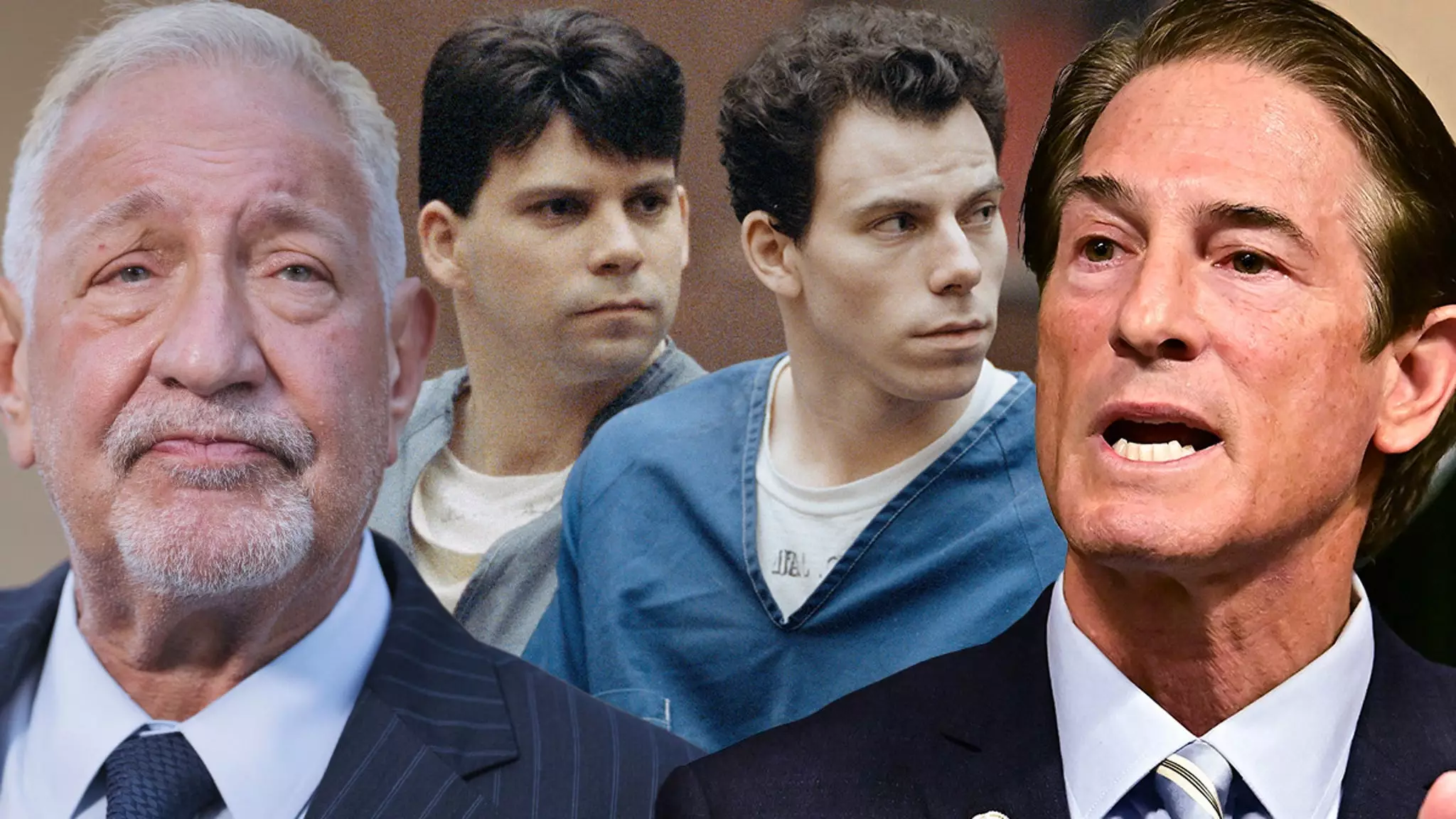The Menendez brothers, Erik and Lyle, captured the public’s attention in the 1990s after being convicted of the shocking murder of their affluent parents in Beverly Hills. The gruesome details—a double murder executed with shotguns in their home—set the stage for a sensational trial that dug deep into the brothers’ troubled childhoods, marked by allegations of severe abuse. While their conviction resulted in life sentences without parole, the narrative surrounding their case continues to evolve, now placed under the scrutiny of Los Angeles County District Attorney Nathan Hochman.
Hochman’s Firm Stance
Hochman, who recently faced calls for recusal from the Menendez case, has resolutely declined to step aside, asserting that there is “no legal basis” for such a request. This move is both bold and contentious, suggesting Hochman’s commitment to the long-standing legal principles in place. He criticized the defense tactics, describing the call for recusal as a “drastic and desperate step,” which essentially indicates that the defense is trying to divert attention away from the core issue of resentencing—something Hochman firmly opposes.
The tensions between the prosecution and defense aren’t just a legal battle; they represent a broader discourse on how justice is administrated in high-stakes, emotionally-charged cases. Hochman’s firm stance reflects a desire to uphold what he sees as the integrity of the judicial process, while it simultaneously raises questions about whether his personal background—growing up in Beverly Hills and attending the same high school as the Menendez brothers—clouds his objectivity.
Emotional and Legal Fallout
The accusations from the Menendez defense team against Hochman claim that he has been “retraumatizing” the family by invoking painful memories related to the crime during court hearings. They allege that his decision to display graphic crime scene photos in a hearing severely impacted a family member, resulting in a hospital visit. This brings to the forefront the delicate balance the judicial system must strike between obtaining necessary evidence and respecting the emotional capacity of victims and their relatives.
The emotional toll of such trials is undeniable. In a world where justice seeks to both serve victims and punish offenders, Hochman’s actions underscore an often-ignored aspect: the psychological impact on families involved, which necessitates a compassionate approach from legal professionals, devoid of sensationalism.
A Broader Perspective on Criminal Justice
Bryan Freedman, attorney for the Menendez brothers, expressed strong criticism, suggesting that Hochman’s focus on media appearances detracts from pressing issues plaguing Los Angeles, such as escalating crime rates. His words resonate with those who believe the justice system should prioritize substantial reforms over personal publicity. Freedman argues that Hochman’s approach may not only be misguided but also inherently disconnected from the realities of crime and rehabilitation.
This critique highlights the ongoing struggle within the legal arena: the battle between maintaining a strong public image of justice and genuinely addressing the needs and rights of victims, offenders, and the broader societal fabric. The Menendez case, in this regard, transcends mere legal proceedings; it forces us to confront our definitions of justice, accountability, and empathy.
Implications of Resentencing and Clemency
The upcoming court hearing is likely to be a pivotal moment, centering on Hochman’s recusal and the admissibility of a risk assessment report. California Governor Gavin Newsom’s directive to conduct a risk assessment before any clemency decision plays into the complex matrix of public safety concerns versus individual rehabilitation efforts. The Menendez brothers have advocated for resentencing, having reportedly shown signs of rehabilitation during their time in prison.
Their hope for a second chance raises pertinent questions about the nature of justice and whether past offenses should forever dictate the future of an individual’s life. With growing public discourse around prison reform and rehabilitation, the Menendez case could set precedents that affect not just the brothers but the larger landscape of criminal justice in America.
As the narrative unfolds, it serves as a reminder that the path to justice is rarely straightforward, colored as it is by deep-seated emotions, personal histories, and societal expectations. The Menendez saga is far from over, and with Hochman’s unyielding stand, the public and the court will watch closely as the next chapter unfolds.

